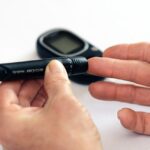Why is Vitamin B9 Important?, Symptoms Folic Acid Deficiency


Folic acid, or vitamin B9, is important to the body for proper cell growth and function, as well as for making red blood cells.
“If we don’t give the body enough folic acid, our cells can’t produce new DNA, they can’t divide and multiply,” the New York dietitian explained.
Also read: 14 Vitamin D Deficiency Signs: Symptoms, Causes and Treatments
That is why it is very important for pregnant women to take it, especially during the first trimester of pregnancy, when the cells divide rapidly. However, folic acid is also needed by adults, whose bodies need to constantly create new cells to stay healthy.
As the human body itself does not produce folic acid, it should be taken with food or as a dietary supplement.


Symptoms of Deficiency of Vitamin B9 (Folic Acid)
- The best indicator of folic acid deficiency is megaloblastic anemia, a condition in which our body produces fewer red blood cells that are abnormally large (megaloblasts).
- Folic acid deficiency prevents the proper synthesis of DNA, which is why a smaller number of red blood cells are created, which are responsible for supplying tissues with oxygen.
- Symptoms that may occur in this case are weakness, fatigue and irritability, headache, shortness of breath and difficulty concentrating.
- According to the recommendation of the American National Institutes of Health, the average adult needs 400 micrograms of folic acid a day.
- Cells in the mouth and skin regenerate more frequently, so the first signs of folic acid deficiency usually occur there, and symptoms include superficial sores in the mouth or tongue, loss of color and pale skin, loss of nail color, or earlier gray hair.
- Some of these symptoms also occur in a number of other situations of impaired health, and folic acid deficiency is determined by a blood test.
Also read: What is the Impact of Vitamin B12 on Health?
Who should pay attention to folic acid deficiency?
Folic acid deficiency is not common and, according to some estimates, affects only one percent of the population. There should be no reason to worry if you eat a variety of foods that are rich in nutrients, but some people are at higher risk of folic acid deficiency.
Alcoholics are cited as examples. In addition to not eating enough, their body often suffers from various disorders such as liver dysfunction, which creates problems in digestion and absorption of nutrients.
Also read: Top 10 Vegetables and Fruits Highest in Vitamin C
Pregnant women, as well as women who are considering pregnancy, should increase their daily intake of folic acid to 600 micrograms.
Another example is women in the early stages of pregnancy, when the need for folic acid increases due to the accelerated growth of the fetus, and some pregnant women may have a reduced appetite at this stage.
People suffering from gastrointestinal problems such as celiac disease or inflammatory bowel disease due to the increased possibility of slower absorption of nutrients could also have problems with folic acid deficiency.
How to Provide the body with enough folic acid?
The best natural sources of vitamin b9 (folic acid) include spinach, asparagus, peanuts, broccoli, avocados, oranges, beans and Brussels sprouts.
Vitamin B9 Foods: Eating more green leafy vegetables also increases the intake of other nutrients, such as fiber, which are good for the digestive tract. With the right approach to nutrition the benefits will only grow.
The synthetic form of folic acid, as found in food supplements, can also be found as a supplement in various flour products, such as bread, pasta and rice, but also in cereals that we eat for breakfast.
Also read: Soaked Almonds Vs Dried Almonds: Which is Better?
Pregnant women, as well as women who are considering pregnancy, should increase their daily intake of folic acid to 600 micrograms. The pregnant woman’s body seeks folic acid immediately, on the first day of pregnancy, because the developing embryo, receiving insufficient of this vitamin, can suffer damage to the brain and spinal cord.
Providing the body with 600 micrograms of folic acid from food alone could already be problematic, so pregnant women and women planning a pregnancy are advised to take extra in the form of dietary supplements.
The upper limit of the recommended daily dose has been set at 1,000 micrograms by the US National Institutes of Health, but there is little chance that you will overdose on folic acid. Namely, it is a water-soluble vitamin, so the body will get rid of the excess through urine.










